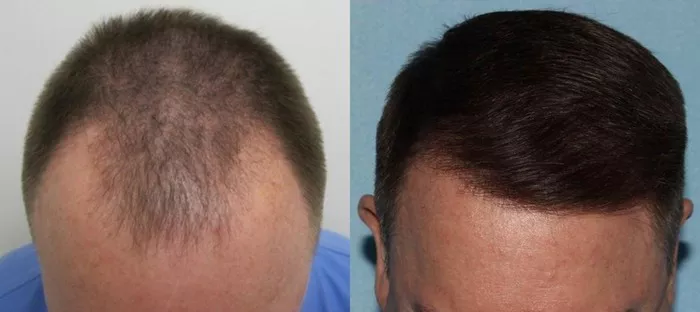Undergoing a hair transplant is a significant step towards regaining confidence and a fuller head of hair. As you embark on the post-transplant healing journey, paying attention to your diet becomes crucial. Certain foods can either support or hinder the healing process and overall success of the transplant. In this guide, we’ll explore the foods to avoid after a hair transplant to ensure optimal recovery and successful graft integration.
1. Hydration is Key: The Foundation of Healing
While not a specific food, staying adequately hydrated is paramount after a hair transplant. Water plays a vital role in the body’s healing processes, including the repair of tissues and the growth of new hair. Avoiding dehydrating beverages like caffeinated drinks and excessive alcohol is essential. Opt for water to keep your body and scalp well-hydrated, promoting a conducive environment for healing and hair growth.
See Also: Can Transplanted Hair Fall Out After 2 Years: A Simple Guide
2. Salty and Spicy Fare: Minimize Sodium Intake
High sodium levels can contribute to swelling, a common side effect after a hair transplant. Foods high in salt, such as processed snacks, fast food, and certain canned goods, should be limited. Excess sodium can lead to increased water retention, potentially exacerbating post-operative swelling and discomfort. Opt for fresh, whole foods prepared with minimal added salt to support the healing process.
3. Acidic Foods: A Potential Irritant
Acidic foods, such as citrus fruits and tomatoes, can be potential irritants during the initial healing phase. These foods may cause discomfort or a burning sensation, especially if they come into contact with the transplanted area. While these foods offer essential vitamins, consuming them in moderation and choosing less acidic alternatives during the early recovery period is advisable.
4. Hot and Spicy Foods: Proceed with Caution
Hot and spicy foods, including those rich in chili or strong spices, can increase blood flow and potentially cause irritation to the healing scalp. It’s advisable to avoid excessively spicy dishes during the initial stages of recovery to minimize discomfort and reduce the risk of inflammation around the transplanted area.
5. Vitamin and Herbal Supplements: Consult Your Surgeon
While vitamins and herbal supplements are generally beneficial for overall health, some may interfere with the healing process or have blood-thinning properties. Before resuming your supplement regimen, consult with your surgeon. Certain supplements, such as high doses of Vitamin E or herbal supplements like ginseng and ginkgo biloba, may need to be temporarily avoided to prevent complications during the critical recovery period.
6. Excessive Sugars: Managing Inflammation
High sugar intake can contribute to inflammation, which may impede the healing process. Processed sugars and sugary snacks can lead to spikes in blood sugar levels, potentially affecting the body’s ability to recover efficiently. Opt for a balanced diet that includes natural sources of sugars, such as fruits, and avoid excessive consumption of sugary treats during the initial weeks post-transplant.
7. Alcohol: A Temporary Abstention
Alcohol consumption can have various effects on the body, including potential interactions with medications and increased risk of bleeding. To support the healing process and minimize potential complications, it’s advisable to abstain from alcohol for a designated period post-transplant. Consult with your surgeon for specific guidelines based on your individual health and recovery progress.
8. Fast Food and Processed Meals: Prioritize Whole Foods
Fast food and heavily processed meals often contain high levels of unhealthy fats, sodium, and preservatives. These can hinder the body’s natural healing mechanisms and contribute to overall inflammation. Opting for fresh, whole foods, rich in vitamins and nutrients, supports the healing process and provides essential building blocks for new hair growth.
9. Overly Hot Beverages: A Gentle Approach
While enjoying a warm beverage can be comforting, excessively hot drinks may increase blood flow to the scalp and potentially cause irritation. During the initial recovery period, it’s advisable to consume beverages at a moderate temperature to avoid any adverse effects on the transplanted area.
Conclusion: A Thoughtful Approach to Nourishment
In conclusion, the foods you choose after a hair transplant can significantly impact the healing process and the success of the procedure. Prioritizing a well-balanced, nutrient-rich diet while avoiding specific foods that may hinder recovery is crucial. Remember to consult with your surgeon for personalized guidelines based on your unique health profile. By adopting a thoughtful approach to nourishment, you contribute to a smoother recovery and set the stage for the flourishing of your newly transplanted hair.


